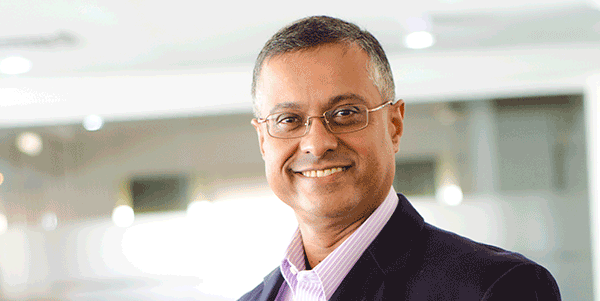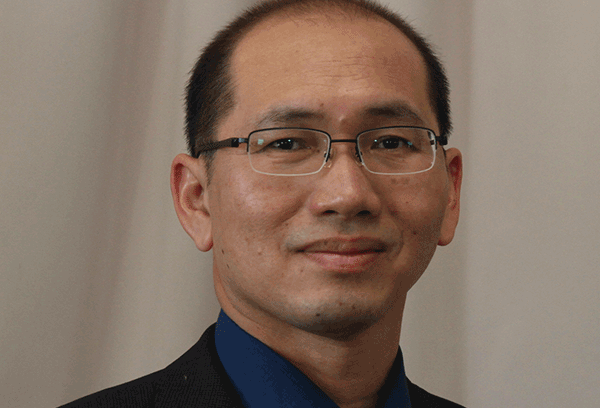Financial planners are experts at putting themselves in their clients’ shoes to give advice about investments. However, not everyone has the luxury of soliciting professional advice to achieve the goal of buying their first home.
We decided to give you a head start on this and have asked seven licensed planners this question:
How can I save up to buy my first home in Malaysia?
Here’s the advice given to realise your dream of owning your first property:
1. Exercise delayed gratification
The first stumbling block most people face when it comes to buying their first home is in saving up for the 10% initial payment and other miscellaneous fees. The best way to do this is by exercising delayed gratification – reduce your luxuries now to enjoy even greater luxuries later.
This could be practiced in many ways like opting to use an outdated mobile phone or driving a modest second-hand car. Reducing these expenses helps to build up personal savings that can form the bedrock for the down payment on your home.
Relentless attention should also be paid to improving your personal cash flow by maximising cash inflows and minimising cash outflows. This is best done by working hard to increase income and practising delayed gratification to reduce your expenses.
You can also utilise the money in EPF Account 2 to maximise the size of the initial payment and to minimise the amount borrowed.
– Rajen Devadason, CFP, Securities Commission-licensed financial planner with MAAKL Mutual Bhd and CEO of RD WealthCreation Sdn Bhd
2. Begin with the end in mind
 Buying your first property is often one of the biggest events in your life and as such you should begin with the end in mind. Do not make the mistake of rushing into buying or entering into any investment or savings plan without proper planning.
Buying your first property is often one of the biggest events in your life and as such you should begin with the end in mind. Do not make the mistake of rushing into buying or entering into any investment or savings plan without proper planning.
Start with your aspiration. Understand why you need it, identify the type of house you want to get, where it should be located, when do you need it and how much it costs.
“You want your ‘home’ to bring you joy and not quarrels over the debts in the long run.”
Then, come up with a suitable regular investment or savings plan to help you achieve your goal. If you can’t afford to buy your dream house yet, consider renting or start small. Home is not only a place where we live but where we belong to. You want your “home” to bring you joy and not quarrels over the debts in the long run.
– Sin Chee Kwan, CFP, Chief Executive Officer of Fin Freedom Sdn Bhd
3. Sacrifice now for bigger gains later
It’s a norm to live on credit in today’s economic climate. Spending is much easier than saving, especially saving for a big ticket item like your first home. It is increasingly hard for an average Gen-Y to buy a house of their dreams. However, it’s our financial behaviour, not financial mathematics that determines the success of this goal:
- Save before spend – Have the discipline to save your targeted amount every month.
- Increase the pain of paying – Only use cash or debit cards when you spend.
- Delayed gratification – Detach yourself from marketing ploys and live within your means.
- Don’t be greedy – Don’t gamble on get rich quick schemes as these invite default and speculative risks.
- Be diligent in working and spending – Work hard to make more and focus on saving to build up your reserves faster.
– Gavin Teoh Hock Geh, CFP, IFP, B.Sc(Hons), Director of Advisory & Practice Management, CMSRL/A3564/2007, Centum Sage Advisory
4. Inculcate the habit of saving
Start saving as soon as you start receiving an income, be it angpow, pocket money or salary. The most important part in the act of saving is not the amount but the habit. Inculcate this habit by first putting aside a minimum amount of money regularly, before you even get a chance to spend it.
“The most important part in the act of saving is not the amount but the habit.”
The best time to save is now! The sooner you start saving, the more you will accumulate. Since you have longer time horizon (due to your young age), invest the money wisely and regularly to help you grow your money.
Always choose the right investment vehicle that suits your risk appetite.
– Datin Alice Neow Ean Lee, CFP, IFP, Associate Director – Financial Planning for Women, A.D. Financial Sdn Bhd
5. Start planning early
Your plan to buy a home should start the moment you get your first job, and not a year before you get married. Make it your top priority and aim to purchase your first property before you get married because after you are married, your spouse will often influence your choice of property.
You can use this commitment to push yourself to work harder to earn more money. To save up for your first house, keep your living expenses below 50% of your take home income.
“Reduce expenses that do not put money into your pocket.”
Save and invest the rest, about 20% to 30% for house. If you need a car, buy a used car instead of a new one, so that you can allocate more money for property. Maintain a good record of debt repayment so that it does not jeopardise your chances of getting a home loan.
Reduce expenses that do not put money into your pocket. All these will help you to cultivate the habit of saving for the future and spending within your means.
– SP Lim, CFP Licensed Financial Planner, Wilfred Consultancy
6. Don’t underestimate the power of budget
Before we get on to the common phrase of property, “location, location, location”, let’s start with the first and more important step – budget, budget, budget. For those considering to save for their first house, always start with a budget.
“Before we get on to the common phrase of property, “location, location, location”, let’s start with the first ands more important step – budget, budget, budget.”
With so many financial expectations and limited resources, getting the first property can be a huge financial burden. Like any financial plan, the first steps anyone should take are:-
- Reassess your current cash flow against current income.
- Categorise expenses as needs and wants, remove those that can wait.
- Save up adequate emergency funds before planning to save for first house. Put aside at least three to six months of expenses.
- Establish the appropriate budget to own a home. For example, if you have RM1,000 a month to play around with, work out a specific plan to achieve your goal by planning how long it would take to save for the 10% down payment.
- From the budgeting, shortlist the types of homes that you can afford to purchase. No point trying to commit to what you cannot pay for in the future. After all, the first house is not an investment but a necessity.
- If the timeframe is short (less than 3 years) to save, it is advisable to place your savings in a fixed deposit account or other low risk investment vehicles like fixed income or bond.
- For longer time frames (more than 5 years), consider placing part of your savings in a balanced fund or income fund depending on risk tolerances, and the remaining in fixed deposit – having more time allows you to take slightly more risk.
- Don’t forget the additional expenses that incur when purchasing a new home, such as, legal fees, stamp duties and also furnishing.
- Finally, make sure all your assets, liabilities and incomes are protected by having comprehensive insurance coverage.
– Lawrence Seow, CFP, Head, Financial Planning, VKA Wealth Planners Sdn Bhd
(A Financial Planning Firm Licensed by Securities Commission & Bank Negara Malaysia)
(A Corporate PRS Advisory Firm Licensed by Securities Commision & Federation Of Investment Managers Malaysia)
7. Set a target and work towards it
For most newlyweds, buying their first property can be stressful due to other commitments, such as car loans and family dependents. Thus, it is important to set a target for yourself.
If your target is to buy your first residence in three years’ time, set aside a minimum of 30% of your household net income and save up to 20% of the price of your potential property.
For example:
Household net income = RM6,500
30% monthly savings for 3 years to achieve 20% of down payment:
RM6,500 X 30% = RM1,950
RM1,950 X 36months = RM70,200
With RM70,200, you can start looking for a property within the range of RM351, 000
By setting a realistic deadline, it motivates you to achieve your target and minimise the risk of property volatility. It is also recommended to save up 20% down payment to cover the processing fees, legal fees, stamp duty and others. By saving more, you can hedge the property inflation risk.
– Nicholas Chu (CFP, IFP, RFP), Financial Planner cum Speaker, Phillip Wealth Planner Sdn Bhd
Armed with these practical tips, you can take first step to buying your first home. These money management tips could possibly save you from making a bad decision that would delay your goal.
Ultimately though, saving, no matter how insignificant the amount may seem, is more than half the battle won. Discipline yourself to stick your plan and goal.
Share with us some of lessons you have learned in buying your first residence in the comment section below!















